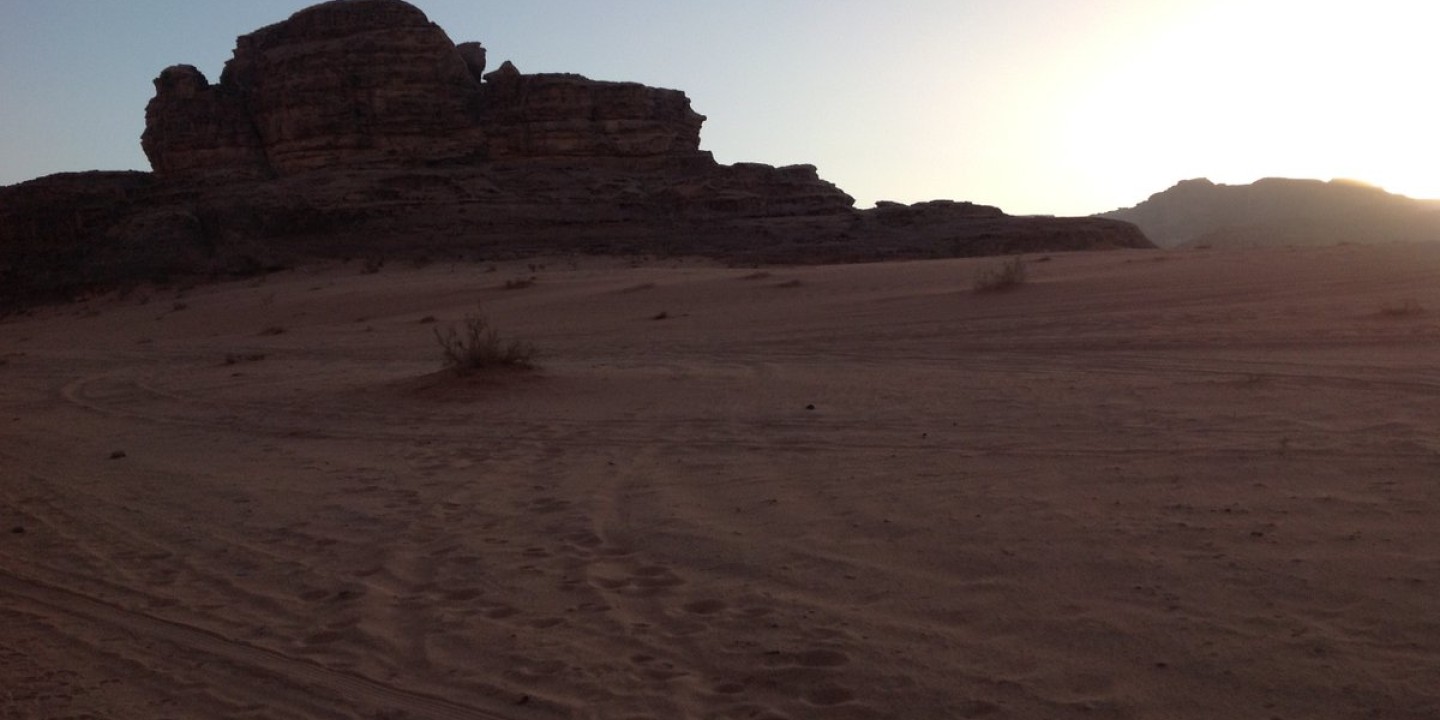Prepare the way of the Lord
When we live in God’s grace, the distinction between wilderness and city collapses.

A week ago, I saw the Milky Way galaxy. I don’t mean that I saw a picture of it. I literally saw the Milky Way, so dark was the sky. It looked like a very long, thin swath of clouds running across a sky full of bright stars. Our tour bus had taken us to a desert wilderness area in southern Jordan called the Wadi Rum, to watch the sunset and have a Bedouin dinner and learn about Bedouin culture. After dinner, we lay down in the sand next to a group of camels and looked up at the night sky. As our eyes adjusted to the darkness, the Milky Way came into view. We saw a couple of shooting stars. The camels breathed next to us. It felt so vast and peaceful. It felt so different from the city that I’m used to living and working in.
Being in the Holy Land taught me something about desert wilderness. During Advent, we hear John the Baptist cry out from the wilderness: “Prepare the way for the Lord.” Perhaps I’m romanticizing it, but after spending a week in Jordan’s wilderness areas I’m thinking it’s a lot easier to prepare the way for the Lord in a vast, peaceful, unpopulated desert land than it is in our cities where there’s overcrowding and light pollution and racism and homelessness and political strife. If I were Jesus and planning to come back to the earth, I know which location I would prefer.
But the city is exactly where Jesus chose to be. I don’t mean literally, because he spent some of his time in the wilderness as well as in cities and villages. But what I mean is that when God became incarnate as a human being, God entered all the strife and muck and craziness of what it means to be a human living in close proximity to other humans. God didn’t choose the wilderness option, hovering like a divine spirit above a pristine landscape of pink sand and star-filled skies, apart from the pain of humanity. God chose a stable in a town that was so crowded there was no room in the inn. God chose a group of fishermen who had to deal with the ramifications of leaving behind their families. God chose a culture in which there was so much religious fighting and political tension that Jesus would end up hanging on a cross.
These are things we city dwellers are familiar with: overcrowding, competing loyalties, religious fighting, and political tension. When I think about life in the city—which is, of course, a metaphor for the failures of humans and the brokenness of our world—I just want to flee back to the Jordanian wilderness and lie underneath the starry sky. But that wish rests on a simplified view of reality. Because as idyllic as the Jordanian desert felt to me, the truth behind that wilderness is that it’s located in one of the most politically and religiously volatile regions of the world. Jordan itself is quite safe, probably safer than I am most days in my own city here in the United States. But it shares borders with Syria and Iraq, and refugees have fled into Jordan by the hundreds of thousands.
Over the past five years, Jordan has accepted so many Syrians that nearly a quarter of the country’s population is now refugees. (That would be like bringing 17 million Mexicans into America, suggested one Jordanian priest I spoke with about the refugee crisis.) Christians in Jordan are providing trauma counseling, food, winterization of temporary homes, and vocational training to the refugees, who are mostly Muslim—not in an attempt to convert them to Christianity, but simply because they are neighbors who are in need.
Here you have a wilderness nation turning its borders into temporary cities for people fleeing war, and people from the cities traveling across the wilderness to help refugees along the border. These Christians who leave their cities to feed and counsel the refugees love their neighbors because that’s what Christ calls us to do. In a sense, then, the distinction between wilderness and city collapses when Christ’s love comes into the picture. There’s a lot of pain in both locations. The entire world—wilderness and city—is fallen. But there’s also grace, no matter where you look. The entire world—city and wilderness—is saved.
Disclosure: The Jordan Tourism Board covered most of the expenses for my trip to Jordan, but all of the impressions and opinions in this blog are my own.





